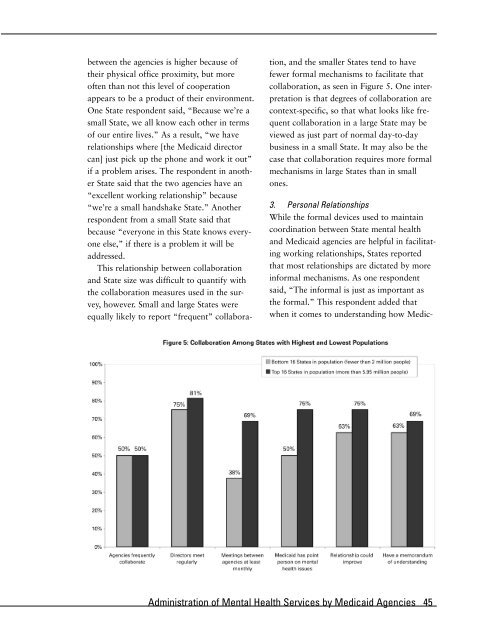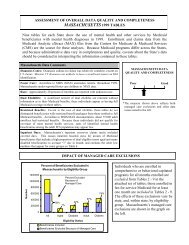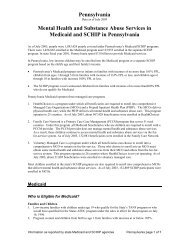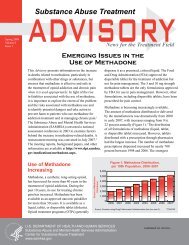Administration of Mental Health Services by Medicaid Agencies
Administration of Mental Health Services by Medicaid Agencies
Administration of Mental Health Services by Medicaid Agencies
Create successful ePaper yourself
Turn your PDF publications into a flip-book with our unique Google optimized e-Paper software.
etween the agencies is higher because <strong>of</strong>their physical <strong>of</strong>fice proximity, but more<strong>of</strong>ten than not this level <strong>of</strong> cooperationappears to be a product <strong>of</strong> their environment.One State respondent said, “Because we’re asmall State, we all know each other in terms<strong>of</strong> our entire lives.” As a result, “we haverelationships where [the <strong>Medicaid</strong> directorcan] just pick up the phone and work it out”if a problem arises. The respondent in anotherState said that the two agencies have an“excellent working relationship” because“we’re a small handshake State.” Anotherrespondent from a small State said thatbecause “everyone in this State knows everyoneelse,” if there is a problem it will beaddressed.This relationship between collaborationand State size was difficult to quantify withthe collaboration measures used in the survey,however. Small and large States wereequally likely to report “frequent” collaboration,and the smaller States tend to havefewer formal mechanisms to facilitate thatcollaboration, as seen in Figure 5. One interpretationis that degrees <strong>of</strong> collaboration arecontext-specific, so that what looks like frequentcollaboration in a large State may beviewed as just part <strong>of</strong> normal day-to-daybusiness in a small State. It may also be thecase that collaboration requires more formalmechanisms in large States than in smallones.3. Personal RelationshipsWhile the formal devices used to maintaincoordination between State mental healthand <strong>Medicaid</strong> agencies are helpful in facilitatingworking relationships, States reportedthat most relationships are dictated <strong>by</strong> moreinformal mechanisms. As one respondentsaid, “The informal is just as important asthe formal.” This respondent added thatwhen it comes to understanding how Medic-<strong>Administration</strong> <strong>of</strong> <strong>Mental</strong> <strong>Health</strong> <strong>Services</strong> <strong>by</strong> <strong>Medicaid</strong> <strong>Agencies</strong> 45
















